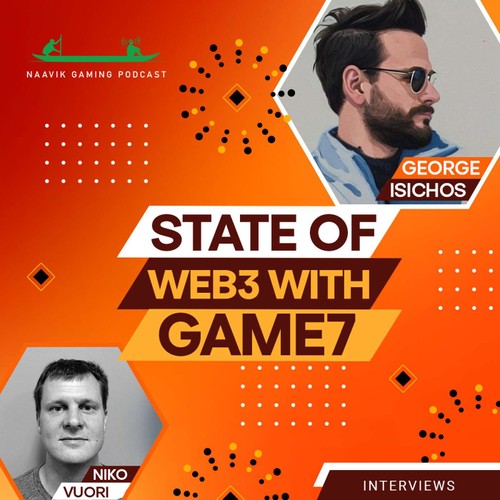
 Naavik Gaming Podcast
Naavik Gaming Podcast The State of Web3 With Game7
Nov 21, 2023
Game7, a community formed to accelerate the adoption of Web3 gaming, released the first comprehensive study of the Web3 gaming ecosystem. The report covers data from nearly 2,000 Web3 games, over 1,000 funding rounds, and almost 200 blockchain ecosystems. The podcast discusses the global player base and funding trends, country and company involvement in Web3, challenges and opportunities of Web3 game distribution, the evolving landscape of Web3 games, trends and predictions in Web3 game development, and the growth and future of Web3.
Chapters
Transcript
Episode notes
1 2 3 4 5 6 7
Introduction
00:00 • 5min
Global Player Base and Funding Trends
04:44 • 25min
Discussion on Country and Company Involvement in Web3
30:12 • 2min
Challenges and Opportunities of Web3 Game Distribution
32:28 • 6min
Evolving Landscape of Web3 Games
38:09 • 19min
Trends and Predictions in Web3 Game Development
57:00 • 3min
The Growth and Future of Web3
01:00:29 • 5min
